The Catalyst Killing - [18]
I asked if she still stood by her statement about having seen a face at the window, as well as a person out in the storm that night. Miriam Filtvedt Bentsen nodded, more serious now. She understood, she said, that her account of a face looking in through the window that night sounded absurd, and the fact that the upper part of the face had been hidden by a mask made it even more far-fetched. But that was exactly what she had seen, and she would never have tried to deceive the police with such an unlikely story.
She looked me straight in the eye when she said this, and I had to agree with Detective Inspector Danielsen’s notes from 1968, despite my antipathy towards him. The witness appeared to be reliable, even if her story was rather bizarre.
Miriam Filtvedt Bentsen added that it was a man who had looked in, and that he had a mole on his chin, which she would recognize if she ever saw him again. But otherwise it was not possible to describe him in any more detail, because of the mask and the weather.
She was even more cautious about describing the person she had seen out in the storm, as the visibility was so poor. She had been a short distance away from the others, but was sure enough of what she had seen to shout to them and point at the shadow in the dark. However, it was quite far away and no one else had been able to see it clearly.
Miriam Filtvedt Bentsen looked at me directly again and repeated that she had seen something upright moving through the storm, and that it was too tall, too slim and not the right colour to be an animal. For want of any alternative, she could say with ninety per cent certainty that she had seen a person. She believed that it was a person who was not only walking away from the students, but from the cabin as well. But she added with a disarming and self-deprecatory smile that although her younger brother had inherited the family’s sense of direction, she had not, so she could not be sure.
I looked at my watch and discovered to my surprise that it was a quarter to six. I had been sitting here in the SPP office for more than half an hour, in an interview situation, with my face alarmingly close to that of Miriam Filtvedt Bentsen. And at no point had I been anywhere close to catching her off balance. There was perhaps more interest and curiosity in her eyes now than when we first met, but they were still just as calm and confident when they met mine. I was strongly inclined to believe everything she had said, even though I had several times told myself that this appeared to be a case in which no one could be trusted.
Whatever the case, I was now in danger of being late for my important meeting with the victim’s father. So I promptly thanked Miriam Filtvedt Bentsen for her answers and asked if I could contact her again should any relevant questions arise. She brightened up and said that she had a busy week ahead, what with her studies and party commitments, but that she would of course make time if it was necessary for the investigation. She unfortunately did not have a telephone in her student room, but for the next few days would be at the university library between nine and five, and at the party office between a quarter past five and ten in the evening.
I managed to swallow my laughter. Instead I commented with a smile that she clearly took her studies very seriously – given that she also obviously read on her way from the university to the party office. Her reply was open-hearted and highly unexpected: ‘Before, I even read books in the shower!’
Fortunately, I managed to refrain from blurting out my spontaneous response: ‘Now that I would like to see!’ At the last moment I realized that it might be misconstrued and insulting. So instead I permitted myself a short burst of friendly laughter. She gave an ironic smile and added that she had stopped when it proved to be impractical. The books were fine as long as you kept them out of the water, but it took so much longer to shower when reading, so it was not rational. Another rather unfortunate consequence was that there was rarely enough warm water left for her parents and little brother.
Miriam Filtvedt Bentsen explained that she believed you had to be a rational idealist to make the world a better place in this day and age. And in order to demonstrate the point, she took out a large pile of papers as she said this and started to sort through them.
I watched the obviously very rational idealist for a few seconds with a mixture of surprise and fascination. She sorted with alarming speed. I thanked her once again for the information and wished her a good evening – and was only too well aware that I would be late for my meeting with the deceased’s father.
Miriam Filtvedt Bentsen looked up briefly from her pile of paper, waved and flashed me a crooked smile as I left the office. For want of any other leads, I interpreted it as a good omen for my investigation. I found it reassuring and credible, and not in the least suspect, that she was the only one who had remained calm on the night that Falko Reinhardt had disappeared. And for my own personal record, I noted that the sole dissenter in the group was rather beautiful as she sat there alone, smiling, even if it was by a desk in the SPP office.
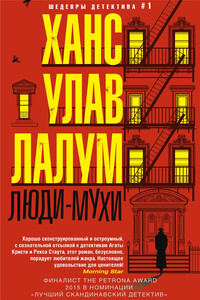
Убит бывший лидер норвежского Сопротивления и бывший член кабинета министров Харальд Олесен. Его тело обнаружено в запертой квартире, следов взлома нет, орудие убийства отсутствует. На звук выстрела к двери Олесена сбежались все соседи, но никого не увидели. Инспектор уголовного розыска Колбьёрн Кристиансен считает, что убийство, скорее всего, совершил кто-то из них. Более того, он полагает, что их показания лживы.
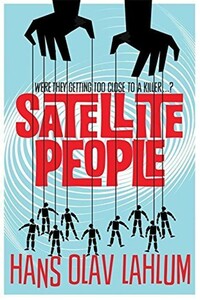
A gripping, evocative, and ingenious mystery which pays homage to Agatha Christie, Satellite People is the second Norwegian mystery in Hans Olav Lahlum's series. Oslo, 1969: When a wealthy man collapses and dies during a dinner party, Norwegian Police Inspector Kolbjorn Kristiansen, known as K2, is left shaken. For the victim, Magdalon Schelderup, a multimillionaire businessman and former resistance fighter, had contacted him only the day before, fearing for his life. It soon becomes clear that every one of Schelderup's 10 dinner guests is a suspect in the case.
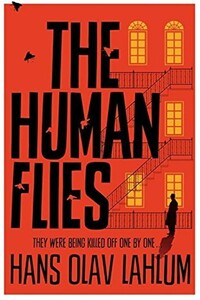
Oslo, 1968: ambitious young detective Inspector Kolbjorn Kristiansen is called to an apartment block, where a man has been found murdered. The victim, Harald Olesen, was a legendary hero of the Resistance during the Nazi occupation, and at first it is difficult to imagine who could have wanted him dead. But as Detective Inspector Kolbjorn Kristiansen (known as K2) begins to investigate, it seems clear that the murderer could only be one of Olesen's fellow tenants in the building. Soon, with the help of Patricia – a brilliant young woman confined to a wheelchair following a terrible accident – K2 will begin to untangle the web of lies surrounding Olesen's neighbors; each of whom, it seems, had their own reasons for wanting Olesen dead.
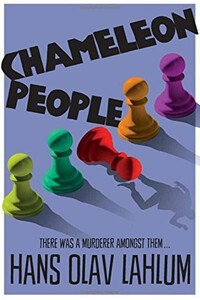
From the international bestselling author, Hans Olav Lahlum, comes Chameleon People, the fourth murder mystery in the K2 and Patricia series.1972. On a cold March morning the weekend peace is broken when a frantic young cyclist rings on Inspector Kolbjorn 'K2' Kristiansen's doorbell, desperate to speak to the detective.Compelled to help, K2 lets the boy inside, only to discover that he is being pursued by K2's colleagues in the Oslo police. A bloody knife is quickly found in the young man's pocket: a knife that matches the stab wounds of a politician murdered just a few streets away.The evidence seems clear-cut, and the arrest couldn't be easier.

Странные, зловещие и не укладывающиеся в голову события происходят в современном мегаполисе. У таинственного бизнесмена неизвестные жестоко убивают жену, а затем кто-то похищает ее тело из могилы. В его жизни появляется красивая и загадочная женщина, чтобы помочь ему выполнить безумную миссию. Кто-то заказывает в ювелирной мастерской клетку из чистого золота высотой в человеческий рост, весом в 158 килограммов и стоимостью шестьсот миллионов рублей. Древний Орден красного льва, основанный самым знаменитым чернокнижником Российской империи Яковом Брюсом, которого называли "русским Нострадамусом" и "личным колдуном" Петра Великого, и о котором сложено много невероятных легенд, ведет охоту на человека, который способен изменить этот мир раз и навсегда.
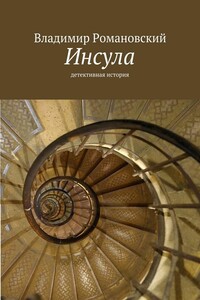
Детективная история, произошедшая в Санкт-Петербурге. Обычные люди в необычных обстоятельствах. Любовь, ненависть, жадность, драки и власть.
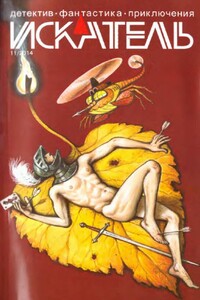
«ИСКАТЕЛЬ» — советский и российский литературный альманах. Издаётся с 1961 года. Публикует фантастические, приключенческие, детективные, военно-патриотические произведения, научно-популярные очерки и статьи. В 1961–1996 годах — литературное приложение к журналу «Вокруг света», с 1996 года — независимое издание.В 1961–1996 годах выходил шесть раз в год, в 1997–2002 годах — ежемесячно; с 2003 года выходит непериодически.Содержание:Анатолий Королев ПОЛИЦЕЙСКИЙ (повесть)Олег Быстров УКРАДИ МОЮ ЖИЗНЬ (окончание) (повесть)Владимир Лебедев ГОСТИ ИЗ НИОТКУДА.
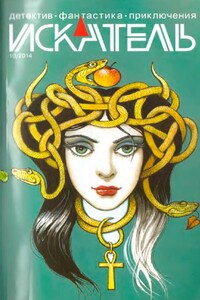
«ИСКАТЕЛЬ» — советский и российский литературный альманах. Издается с 1961 года. Публикует фантастические, приключенческие, детективные, военно-патриотические произведения, научно-популярные очерки и статьи. В 1961–1996 годах — литературное приложение к журналу «Вокруг света», с 1996 года — независимое издание.В 1961–1996 годах выходил шесть раз в год, в 1997–2002 годах — ежемесячно; с 2003 года выходит непериодически.Содержание:Олег Быстров УКРАДИ МОЮ ЖИЗНЬ (повесть);Петр Любестовский КЛЕТКА ДЛЯ НУТРИИ (повесть)
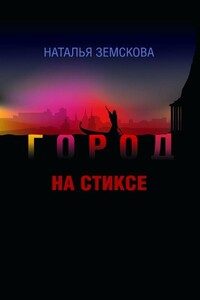
Наталья Земскова — журналист, театральный критик. В 2010 г. в издательстве «Астрель» (Санкт-Петербург) вышел её роман «Детородный возраст», который выдержал несколько переизданий. Остросюжетный роман «Город на Стиксе» — вторая книга писательницы. Молодая героиня, мечтает выйти замуж и уехать из забитого новостройками областного центра. Но вот у неё на глазах оживают тайны и легенды большого губернского города в центре России, судьбы талантливых людей, живущих рядом с нею. Роман «Город на Стиксе» — о выборе художника — провинция или столица? О том, чем рано или поздно приходится расплачиваться современному человеку, не верящему ни в Бога, ни в черта, а только в свой дар — за каждый неверный шаг.
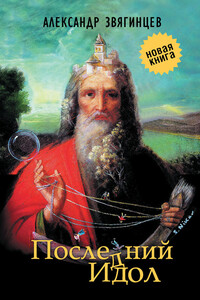
В сборник «Последний идол» вошли произведения Александра Звягинцева разных лет и разных жанров. Они объединены общей темой исторической памяти и личной ответственности человека в схватке со злом, которое порой предстает в самых неожиданных обличиях. Публикуются рассказы из циклов о делах следователей Багринцева и Северина, прокуроров Ольгина и Шип — уже известных читателям по сборнику Звягинцева «Кто-то из вас должен умереть!» (2012). Впервые увидит свет пьеса «Последний идол», а также цикл очерков писателя о событиях вокруг значительных фигур общественной и политической жизни России XIX–XX веков — от Петра Столыпина до Солженицына, от Александра Керенского до Льва Шейнина.